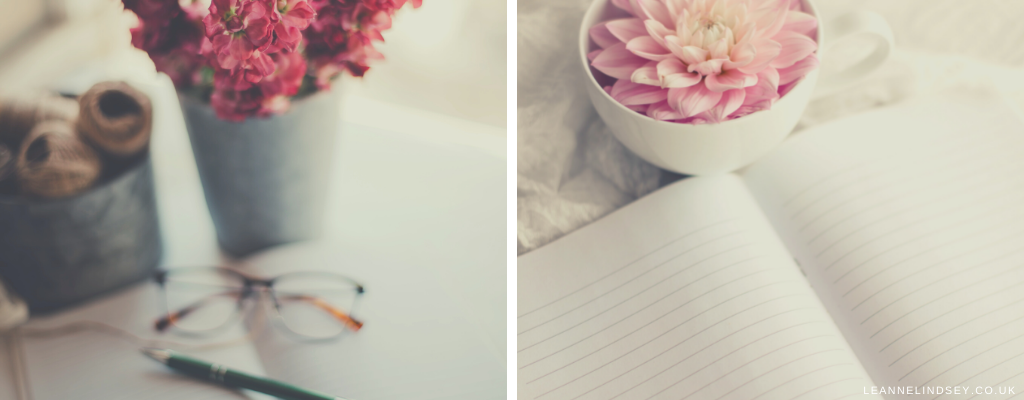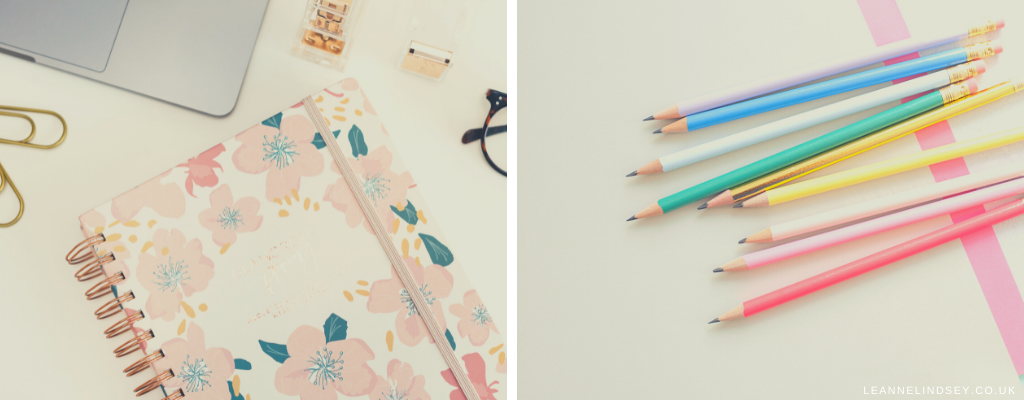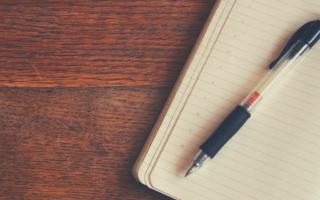
Do you ever find yourself in a full-blown conversation, only to realise that that conversation is actually happening in your own head?
I’m a self-confessed “over-thinker” so this happens to me on a regular basis.
Years ago, my tendancy to over-think was crippling at times.
I found it impossible to make decisions and spent hours, sometimes days and weeks, agonising over possible outcomes if I made the “wrong” decision.
The longer I spent in my head and the more I thought about things, the more irrational and extreme my thoughts would become.
Sometimes, my mind was my own worst enemy.
Does your mind work with you or against you?
Had you asked me this prior to 2009, without a doubt I would have said my mind worked against me.
But in 2009 I discovered journaling.
It was recommended to me as a tool for getting in touch with my “negative” emotions.
I used to be someone who almost never shared my darker, more painful feelings and experiences.
My default response when anyone asked me how I was doing, was “I’m cool”.
Regardless of what was happening in my life and how I was really feeling, my reply was always the same.
I began writing a journal to acknowledge and face emotions I had buried and suppressed for probably my entire life.
It was a challenge at first because I was an extremely private person and I afraid that someone might find my journals and discover how I really felt.
There was also part of me that didn’t feel like I deserved to feel sad, upset, lonely, angry or any of those feelings.
There were people in the world with lives that were much more challenging than my own so I thought I should just suck it up, keep smiling and get on with life.
Thankfully, I was introduced to journaling and began to discover the benefits of writing a journal.
Over time, I’ve discovered that with journaling, I can get my mind to work with me and that it’s actually a powerful ally.
7 Benefits of writing a journal

Writing a journal is more than simply recording a description of your daily life.
Research has found that writing about traumatic, stressful or emotional events results in improvements in both physical and psychological health.
I can vouch that writing a journal has definitely helped me to maintain my mental and emotional wellbeing.
Journaling enhances people’s lives in many ways and here are 7 benefits of writing a journal that I have experienced:
1. Improved clarity
This is the number one benefit I’ve experienced from regularly writing a journal.
Writing in my journal helps me to identify and explore the root causes of my emotions and fears.
It helps me to separate myself from my thoughts and allows me to put things into perspective and context, by giving me just enough distance to look at them rationally and objectively.
My journal also helps me to solve problems and aids my decision making.
2. A deeper relationship and connection with self
Journaling has been one of the most powerful tools for not only getting to know my authentic self but also embracing my true self – warts and all!
Writing a journal is a continuous journey of self-discovery as it enables me to explore my feelings and thoughts, without judgement.
It’s never an enjoyable experience when someone points out your faults and weaknesses.
Journal writing increases self-awareness and I find it a kinder, more gentle way to face my shadow self.
Writing in my journal challenges my thoughts, beliefs and values and forces me to constantly look at what is driving my behaviour.
It also highlights any toxic feelings, thoughts, habits and emotions, and gives me a safe space to confront them.
3. Limitless creative thinking
When I journal, it’s not uncommon for me to discover new ideas and feel totally inspired.
My journal gives me the freedom and confidence to dream without limitations.
I capture all the ideas that come to mind, no matter how “unrealistic” they may seem. And by simply writing these ideas down, it’s much more likely that some of them will become a reality.
Sometimes, we can have what seem to be the craziest dreams and most outlandish ideas and we wouldn’t dare to share them with friends or family.
However, your journal is a place where you are free to express your deepest dreams and desires.

4. A simple tool to consciously create a life you want to live
My journal is a place where I set my intentions.
Initially, this was a fairly random practice, but now I try to do this in line with the lunar cycle.
Every new moon I’ll read a few astrological predictions and then I’ll reflect on what I want to manifest over the coming lunar cycle.
Your journal allows you to take control of your life by choosing what you want and then exploring what you can and need to do to create the life you want to live.
You can also use your journal to set your intentions for the day ahead by writing affirmations, quotes and possibilities.
5. An easy way to measure and track your progress
Looking back through your journal means you can identify habits and patterns of behaviour, both positive and unhealthy.
It helps you to identify what does and doesn’t work as well as highlight what needs improving and what needs releasing.
After writing a journal for some time, you will see patterns emerge in your behaviour and moods, which gives you the opportunity to make changes as well as identify any triggers.
Additionally, by regularly writing in your journal, if you ever have second thoughts or doubt any decisions, you can look back and remind yourself of the reasons or motivation for your choice.
6. A safe place to vent
On social media, venting has become common practice.
However, it’s rarely helpful or healthy venting.
Your journal gives you a safe, non-judgemental space for you to vent about the driver that cut you up on your way to work or your work colleague who gets on your last nerve.
Most of us have someone we go to, to let off steam, but we don’t always feel comfortable expressing ourselves completely.
We often censor what we say – whether it’s due to a fear of being judged, or if you’re anything like me, you may be conscious of sharing “negative” energy – but as a result, we can end up feeling extremely frustrated.
And we often act out that frustration in a toxic way if we leave it unsaid.
I was the Queen of holding things in, but with my journal I can let it all out, then let it go.
As Julia Cameron said: “Once we get those muddy, maddening, confusing thoughts on the page, we face our day with clearer eyes.”
7. A reason to slow down and disconnect
I keep a handwritten journal and it’s what I encourage others to do.
Of course, in the world of smartphones, there’s a huge selection of journaling apps to choose from, but for me, it doesn’t have the same effect.
Writing by hand is becoming an ancient craft, so if you spend most of your day using a computer and smartphone, handwriting in your journal forces you to use your brain in a different way.
I touch type and have a fairly fast typing speed so writing by hand forces me to slow down and think more about what I’m writing.
That in turn, helps me to focus on how I’m feeling.
Additionally, having a regular journal writing practice means I commit to time for myself and disconnect from the world and technology.
It’s time I spend with myself, by myself.
This can be uncomfortable at times, but it forces me to face my authentic self, which provides an opportunity for growth.
What you need to start writing a journal

A notebook and a pen.
That’s it.
That’s all you need to enjoy the benefits of writing a journal.
I normally use notebooks with attractive covers so I’m inspired to write in them, but it can be a standard no-frills notebook.
The pen needs to be one that feels comfortable writing with.
Most of us type these days, so you may find that your hand gets tired quite quickly when you first start writing in your journal.
Other things to keep in mind
- Your journal is not a place for perfection. It’s completely unedited writing.
- You don’t need to be a “good writer” or have perfect spelling, grammar or punctuation to write a journal.
- You are not limited to writing. You can be as creative as you want. You can include drawings, collages, poems, photographs and more; anything that you find interesting or want to capture.
If you adopt a regular journal writing practice, it’s likely that your journal will become your most trusted confidant.
It will become a place for you to be fully self-expressed and get to know your true self.
Write authentically as if no one will ever read your journal.
I hope that now you know some of the benefits of writing a journal, you’re feeling encouraged to start your own journaling practice.
Image Credit: Unsplash




I love this post. I love writing in my journal; it’s my “bae.” Recently, I have been reading my old journal from over 10 yrs ago. And, it has been very interesting. I shared some of it on my blog. Overall, my entries were very entertaining. It actually feels great looking back and seeing my growth to where I am now. Thanks for sharing this post!
Wow! I can imagine it must have been so enlightening to see the difference in yourself and your life 10 years later. I recently went through some of my old journals, not as far back as 10 years though, and was definitely interesting. Not only seeing how far I’ve come, but also seeing the things I’ve been putting off for years. Talking about dreams and goals time after time which made me realise how much I’ve held myself back in some areas of my life. I fall more and more in love with journaling each day and although there are sometimes weeks where I do not journal, I always find myself coming back. It’s definitely a healing balm for me. Thanks for reading and sharing. <3
Interesting! love it. I remember when I was in college I do journaling. I used codes, labels for incidents that is only me who understood it ( just for sensitive issues). reading back after many years since I just found it after Yolanda struck our place, I am amazed just how God bless me, comforted me, and mold me like what I am now. it is just amazing. Journal writing is really having a best friend ready to listen to you anytime of the day. A real comforter. thanks for sharing your post.
Hi, thanks for your comment. I like the idea of using codes and labels, I think that’s really useful for anyone who is concerned about writing their feelings down for fear of someone else reading what they’ve written in their journal. Thanks for sharing that tip. 🙂